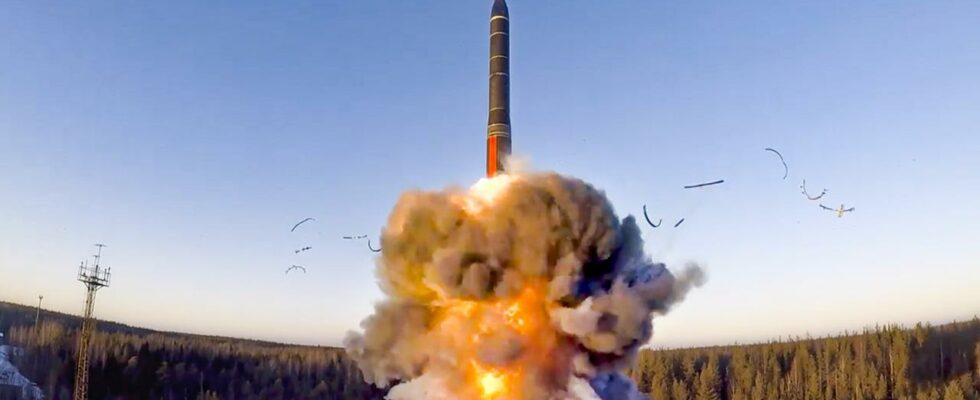The number of operational nuclear weapons rose again last year. This is according to the annual report of the peace research institute SIPRI. For the first time, it looks as if China also has warheads ready for use.
Armament seems to be the order of the day: the more tense the world situation, the more nuclear weapons are becoming important again, according to the SIPRI report. Analyst Dan Smith calculates that the number of nuclear warheads has decreased overall, but this is solely due to the fact that old stocks are being dismantled.
He is concerned about the number of nuclear weapons ready for use. Around 2,100 are in a state of high operational readiness. The number of weapons that are really urgently available has recently increased slightly again, he says. “This is a relatively new development in the last two to three years. And it has continued in 2023,” says Smith.
USA, Russia and China in focus
The USA and Russia possess the vast majority of these weapons that are ready for immediate use. What is new is that China also keeps nuclear warheads in high readiness for use in peacetime. In fact, China is the country that is increasing its stockpiles the fastest.
There are several reasons for this: China wants to achieve the status of a major power – this includes nuclear weapons. Then China is preparing for various threats and scenarios. They want to be prepared for every eventuality and that drives the number up even further. And they want to be prepared for a possible surprise attack in which their own weapons could be destroyed. Having more weapons could make this more difficult.
Nine countries possess nuclear weapons
China’s economic boom is also a reason why the country has been steadily increasing its military spending for almost 30 years. A total of nine countries have nuclear weapons: the USA and Russia, followed by Great Britain, France, China, India, Pakistan, North Korea and Israel.
SIPRI analyst Smith believes that all states will continue to modernize their stocks. “This involves greater precision, greater ranges or more warheads per missile. Nuclear weapons should be easier to conceal in order to make them more survivable,” says Smith.
Britain has ordered a new generation of submarines after the country had previously ordered a new generation of missiles. “This is an ongoing process, the stocks never stand still.”
SIPRI calls for cooperation between states
Smith does not think it is very likely that nuclear weapons will be used. But the risk should still be taken seriously, because the consequences would be more than catastrophic. And the world is currently in a multiple crisis – this requires cooperation between states.
We also need to work together in other areas: on climate change, preparing for the next pandemic, global trade, or curbing international crime. All of these things require international cooperation.
The Stockholm Peace Research Institute (SIPRI) is an independent institution that publishes annual reports on topics such as the arms trade, the arms industry and military spending. SIPRI is largely funded by the Swedish government.

